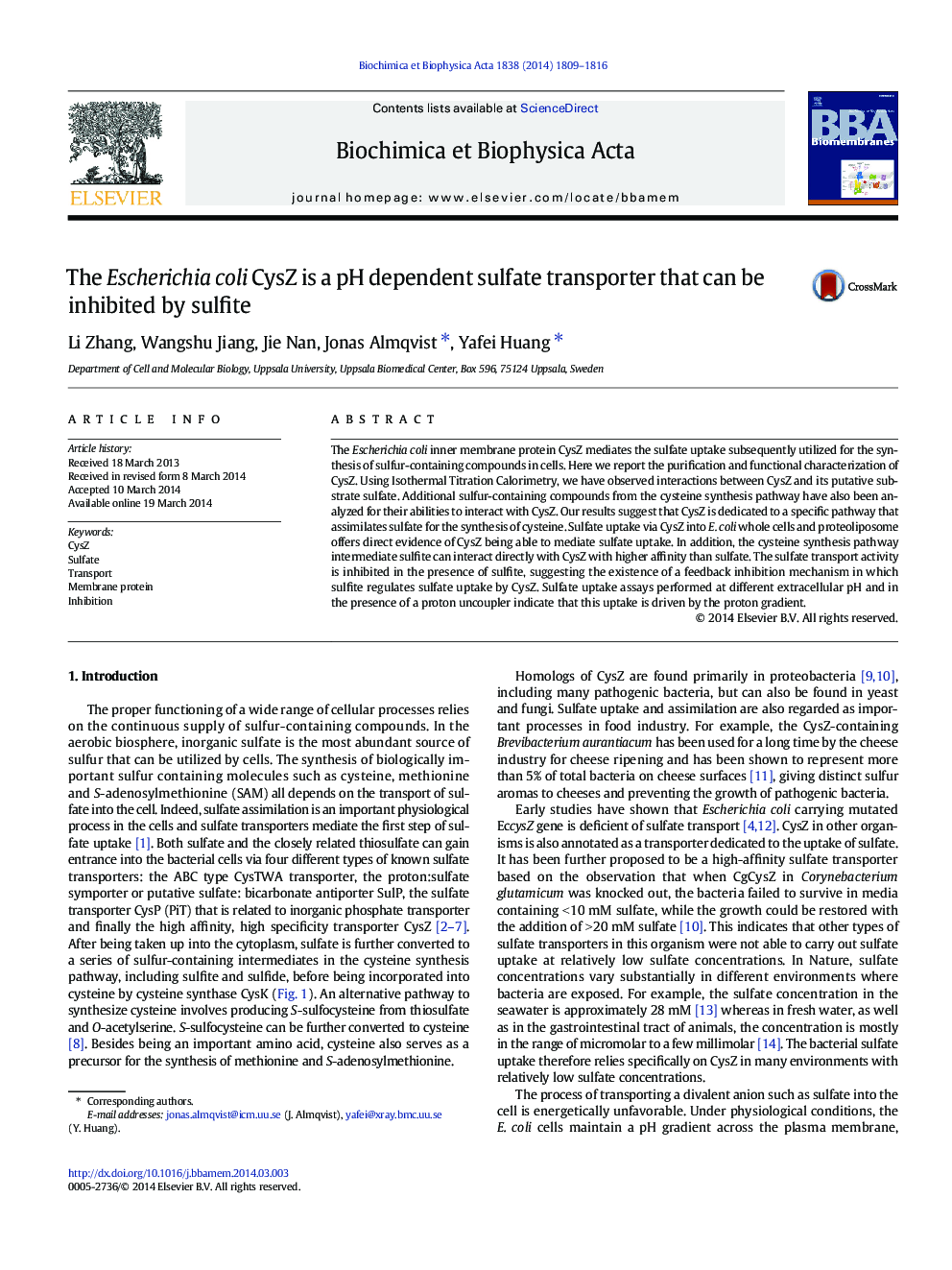| Article ID | Journal | Published Year | Pages | File Type |
|---|---|---|---|---|
| 1944214 | Biochimica et Biophysica Acta (BBA) - Biomembranes | 2014 | 8 Pages |
•The putative E. coli sulfate transport CysZ is shown to mediate sulfate uptake.•Sulfate transport activity is inhibited in the presence of sulfite.•We propose that CysZ is a high-affinity, high-specificity sulfate transporter.•pH-dependence indicates that sulfate uptake is driven by the proton gradient.
The Escherichia coli inner membrane protein CysZ mediates the sulfate uptake subsequently utilized for the synthesis of sulfur-containing compounds in cells. Here we report the purification and functional characterization of CysZ. Using Isothermal Titration Calorimetry, we have observed interactions between CysZ and its putative substrate sulfate. Additional sulfur-containing compounds from the cysteine synthesis pathway have also been analyzed for their abilities to interact with CysZ. Our results suggest that CysZ is dedicated to a specific pathway that assimilates sulfate for the synthesis of cysteine. Sulfate uptake via CysZ into E. coli whole cells and proteoliposome offers direct evidence of CysZ being able to mediate sulfate uptake. In addition, the cysteine synthesis pathway intermediate sulfite can interact directly with CysZ with higher affinity than sulfate. The sulfate transport activity is inhibited in the presence of sulfite, suggesting the existence of a feedback inhibition mechanism in which sulfite regulates sulfate uptake by CysZ. Sulfate uptake assays performed at different extracellular pH and in the presence of a proton uncoupler indicate that this uptake is driven by the proton gradient.
Graphical abstractFigure optionsDownload full-size imageDownload high-quality image (97 K)Download as PowerPoint slide
